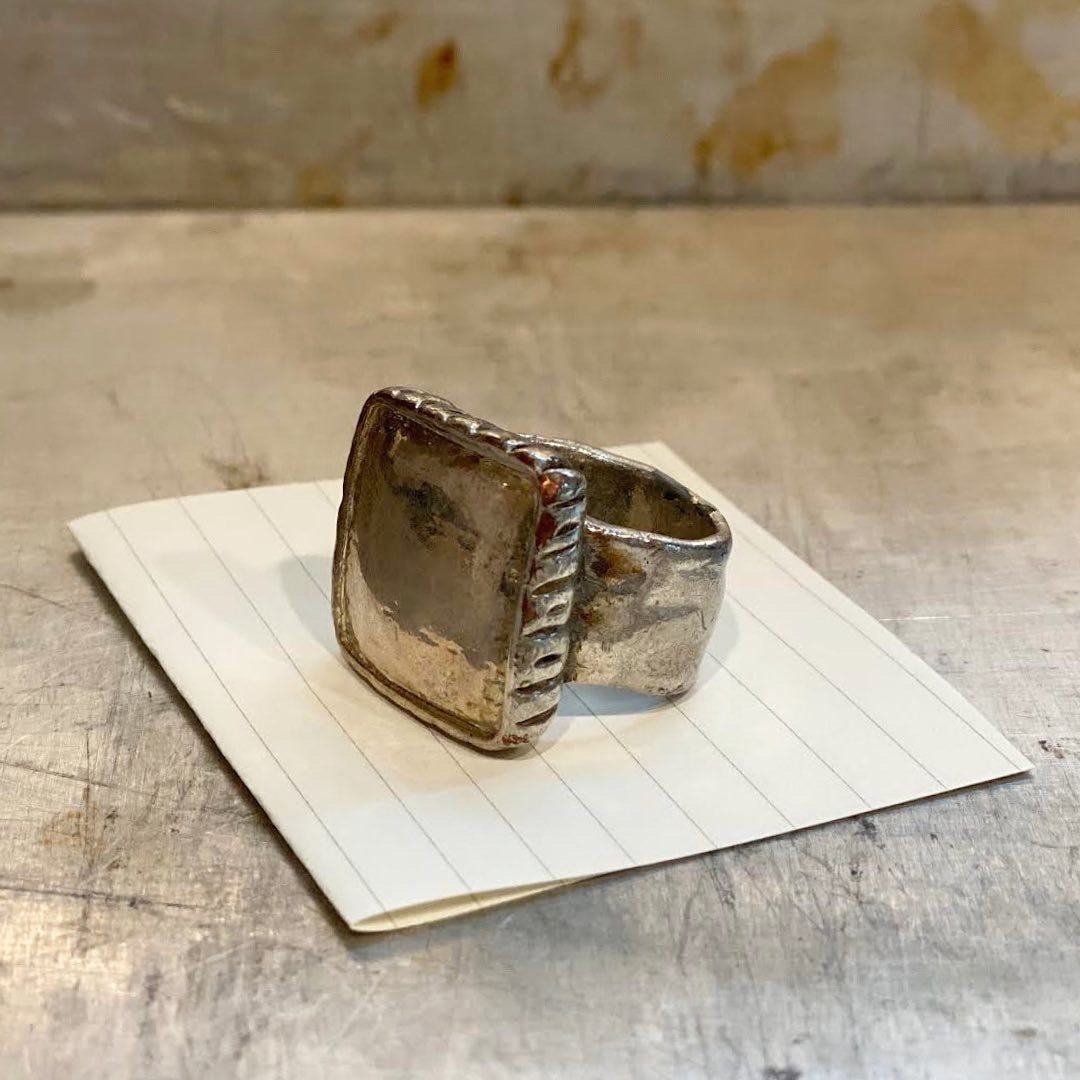THE BROKEN RING
"An object I remembered for many painful reasons."
Mama died, as she’d lived, in her car: a 1990 Pontiac Trans Am. A bubbling overflow of body fluids, phlegm rising from her congested chest, heart and lungs refusing to work together even one second more, gurgling like a clogged drain all the way to the hospital. Somehow she felt the heart attack coming and steered toward an emergency room. Her car was found off kilter, slanted across the lines of the space she’d aimed for, keys pulled from the ignition and still in her hand, driver’s side door wide open. She had no time to turn and step out. When the engine died, she died. The steering wheel cradled her forward-falling head.
She died in Broken Bow, Oklahoma. She was 71 years old. I was 51 and hadn’t seen her in decades. At 16 I’d run away from her and asked the State of Missouri to put me in a group home. Put me in anything. I’d spent eight years in the backseat of Mama’s car taking care of my younger siblings. Never able to avoid her rages or her fists.
By the time she died, all she owned was in a cardboard box stashed in an unpaid storage unit. I had nothing of hers. Nothing tangible. So I reached out to my youngest sister, the one born after I left, a sister I’d never met. She had called me a few months earlier, to tell me Mama wasn’t doing well. Now she said she’d send me the turquoise ring Mama always wore, a ring the size of a knuckle. An object I remembered for many painful reasons.
None of my eight siblings were in my life when Mama died, not day-to-day. What happened to me was, though, every single moment of every day. Neural networks reaching into every part of my body and my brain to thrum their old painful tune.
Five years passed. The ring never came. I began to write stories and post them on a blog— excerpts from a memoir-in-progress about a girl growing up on the road with her siblings. Then one spring, after months of blogging, an awkward envelope fell through the mail slot and hit the floor with a thud. From the sister I’d never met, a baby I’d never had to keep quiet in the backseat of a speeding car, never had the chance to protect from Mama’s rages. I opened the envelope and inside was the ring. Semi-precious, turquoise, more green than blue. Hard. I could not stop shaking.
To finally hold something solid in my hand. Her ring was a visceral reminder that what had happened to me, to our family, was real. A past I would never be able to change.
I called to thank my sister. Mama’s youngest and last daughter and still a stranger to me. We talked for a while and eventually I asked: “Why now?”
She said, "I used to think you didn’t understand the life I’d led with our mother.”
She’d thought the time before she was born must have been a golden time. She’d thought I didn’t know how hard life with Mama had been. How could I know, or even imagine? “And then,” she said, “I read your blog.”
Her response was a gift even beyond the gift of the ring. I didn’t tell her that the ring had broken. Within a week of its arrival the heavy turquoise stone, as green as our mother’s beautiful eyes, had separated from its too-weak setting and was now lost to me. Just as my family had been lost to me for so many years. Without the stone I was lighter somehow. I slipped on Mama’s silver ring and went about the business of living. Hoping her troubled spirit was at last set free.
—Chris J. Rice
Chris J. Rice earned an MFA from California Institute of the Arts. Her stories and essays have appeared in [PANK] Online, The Rumpus, Catapult, Tasteful Rude and Joyland Magazine, and been selected as an editors’ pick in LONGREADS Top Five of the Week, nominated for a Pushcart Prize and named a winner in Hunger Mountain’s Creative Non-Fiction contest. She recently completed a memoir about growing up on the road with her mother.






Stunning. A gorgeous reminder that going about “the business of living” requires not only bravery and grit, but vulnerability and compassion.
I wrote a friend, first thing, this morning about the troubles in their family:
For these last years, so much of what I’ve felt and seen in the world seems to be about the lifeshaping power of unhealed hurt.
It feels like it’s everywhere, sometimes. It pervades lives. I sense it in mine more and more.
Then I read ‘The Broken Ring’. You’ve done the work of healing, Chris, and you’ve helped to heal me. The poet. Audre Lord said she’d written about her cancer experience, the suffering she’d lived through, in order to ‘share it for use’. You’ve made a gift of what you’ve gone through. And I thank you and congratulate you for it.
Rusty